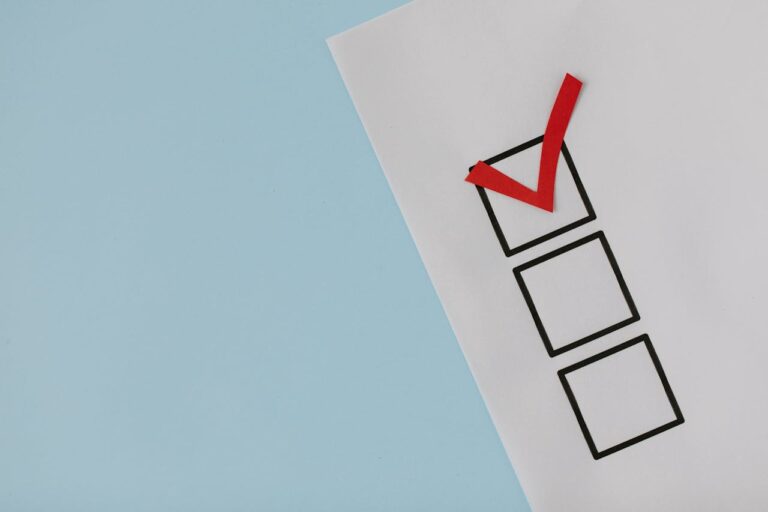Free SHL Test Practice

What is the SHL Test and How Can You Prepare?
The SHL assessment is a widely used pre-employment test that evaluates your cognitive abilities, logical reasoning, and behavioral traits. Employers use SHL tests to identify top candidates for roles in finance, tech, management, and more. Common test types include the SHL General Ability Test, Numerical, Verbal, Inductive, and Deductive Reasoning. Understanding the test format and practicing sample questions can significantly improve your score and increase your chances of getting hired.
If you’re applying for a job with a company that uses SHL assessments, proper preparation can make a big difference. SHL is one of the leading test providers used by employers worldwide to measure candidates’ cognitive ability, logical reasoning, and job-related skills.
On our website, you can practice for SHL tests for free, including the SHL General Ability Test, SHL Numerical Test, Inductive Test, Deductive Test, and Verbal Test. Below is everything you need to know to get started.
What Is the SHL Test?
SHL (Saville and Holdsworth Ltd) is a global leader in talent assessment. Its tests are used to screen candidates based on key competencies like numerical skills, logical reasoning, and verbal comprehension. The format varies depending on the employer and role, but most SHL tests are taken online and are timed.
SHL Test Types and How to Prepare
1. SHL General Ability Test
This is a combination test that evaluates your:
Numerical reasoning
Verbal reasoning
Logical reasoning
Practice Tip: Mastering time management is key. Practice answering questions quickly without sacrificing accuracy.
2. SHL Numerical Reasoning Test
This test measures your ability to interpret and analyze numerical data presented in tables, charts, or graphs.
Sample Question:
If company A’s profit increased by 25% from $80,000 to $100,000, what is the percentage increase?
Practice Tip: Review percentages, ratios, and data interpretation skills. Use a calculator if allowed in your real test.
3. SHL Inductive Reasoning Test
This test examines your ability to recognize patterns and predict logical sequences using diagrams or shapes.
Practice Tip: Focus on spatial awareness and pattern recognition. Practice common visual logic problems regularly.
4. SHL Deductive Reasoning Test
These questions test your ability to make logical deductions based on given premises.
Sample Question:
All engineers are logical. Sarah is an engineer. Therefore, Sarah is logical. True or False?
Practice Tip: Sharpen your critical thinking by practicing syllogisms and logical puzzles.
5. SHL Verbal Reasoning Test
You’ll read short passages and answer questions to assess your comprehension and reasoning based on written information.
Practice Tip: Read business articles and news stories. Practice summarizing key information and identifying logical arguments.
SHL Test Results Explained
SHL uses a percentile-based scoring system. Your raw score (how many answers you got correct) is compared to a norm group. Here’s what the key terms mean:
Raw Score: The total number of correct answers.
Percentile Score: How your score compares to others (e.g., 75th percentile means you scored better than 75% of other test-takers).
Norm Group: The population your score is compared to (e.g., recent graduates, managers, etc.)
Some employers use cutoff scores, while others use SHL scores as part of a broader evaluation.
What Is the SHL Calculation Test?
Some SHL numerical tests are referred to as calculation tests-designed to measure how quickly and accurately you can perform basic mathematical operations.
Topics Include:
Addition, subtraction, multiplication, division
Percentages and ratios
Currency conversions
Practice Tip: Brush up on mental math techniques and speed arithmetic under time pressure.
Start Practicing for Free
You can access free SHL-style practice tests on our website with no registration required. Our practice resources cover:
Timed SHL numerical, verbal, inductive, and deductive tests
Detailed explanations for every question
Tips and strategies to improve your score
Complete List of SHL Tests by Category
| Test Name | Category | Description |
|---|---|---|
| SHL General Ability Test | Cognitive & Aptitude | Combines numerical, verbal, and logical reasoning in one assessment. |
| SHL Numerical Reasoning Test | Cognitive & Aptitude | Tests ability to interpret numerical data in charts, tables, and graphs. |
| SHL Verbal Reasoning Test | Cognitive & Aptitude | Measures comprehension and logical reasoning based on written passages. |
| SHL Inductive Reasoning Test | Cognitive & Aptitude | Evaluates pattern recognition and sequence prediction using abstract shapes. |
| SHL Deductive Reasoning Test | Cognitive & Aptitude | Tests ability to apply logic to reach conclusions from known facts. |
| SHL Calculation Test | Cognitive & Aptitude | Focuses on quick and accurate basic math calculations. |
| SHL Logical Reasoning Test | Cognitive & Aptitude | General logical problem-solving, sometimes overlaps with inductive/deductive. |
| SHL Occupational Personality Questionnaire (OPQ32) | Personality & Behavioral | Assesses personality traits related to job performance and workplace behavior. |
| SHL Motivation Questionnaire (MQ) | Personality & Behavioral | Measures what motivates a person in a professional setting. |
| SHL Situational Judgment Test (SJT) | Personality & Behavioral | Tests responses to realistic workplace scenarios and ethical decision-making. |
| SHL Mechanical Comprehension Test | Skills & Technical | Evaluates understanding of mechanical and physical principles. |
| SHL Reading Comprehension Test | Skills & Technical | Assesses ability to quickly read and understand written material. |
| SHL Checking Test (Error Checking) | Skills & Technical | Measures attention to detail through spotting errors in data sets. |
| SHL Data Entry Test | Skills & Technical | Tests typing speed and accuracy with alphanumeric input tasks. |
| SHL Management & Graduate Tests | Job-Specific | Specialized tests for graduates or managerial candidates combining various skills. |
| SHL Technical Test Batteries | Job-Specific | Role-specific technical assessments, such as IT or engineering knowledge. |
Understanding SHL Test Scores: What They Mean
SHL test scores are designed to help employers compare candidates based on cognitive ability, behavioral traits, or job-specific skills. Here’s how the scoring system works and what you need to know:
1. Raw Score
Your raw score is simply the number of correct answers you give during the test. For example, if a test has 30 questions and you answer 24 correctly, your raw score is 24.
2. Percentile Score
The percentile score compares your performance to other test takers. For instance:
A 70th percentile means you scored better than 70% of the candidates in the comparison group.
Percentile scores help recruiters understand your ranking, not just how many questions you got right.
3. Norm Group
SHL scores are always compared to a norm group-a sample population that matches your test’s context. Norm groups can include:
Graduates
Sales professionals
Managers
Industry-specific groups
Your percentile score is calculated based on how you compare to others in that group.
4. Cutoff Scores
Some employers set a minimum passing score, known as a cutoff score. If your score falls below that level, you may not proceed in the recruitment process.
5. Scoring by Test Type
SHL Numerical, Verbal, Logical: Scored by accuracy and speed, then converted into a percentile.
SHL OPQ32 (Personality Test): No “pass” or “fail.” Results are matched against job profiles to see if your traits align with the role.
SHL SJT (Situational Judgment Test): Scores are based on how well your responses align with preferred workplace behaviors.
How to Improve Your Score
Practice under real test conditions (timed and online)
Focus on your weakest test type (e.g., numerical or inductive)
Review explanations to learn from mistakes
FAQ
SHL tests are pre-employment assessments used by employers to evaluate candidates’ cognitive abilities, personality traits, and job-specific skills. Tests may include numerical reasoning, verbal reasoning, inductive logic, and more.
Many global companies use SHL tests during recruitment, including Amazon, Deloitte, Microsoft, Coca-Cola, and HSBC. SHL is one of the most widely used assessment providers worldwide.
Most SHL tests last between 15 and 45 minutes, depending on the type. Some are shorter (e.g., 10-minute calculation tests), while others like the OPQ32 personality test may take 30–40 minutes.
Yes, many SHL numerical tests allow calculator use, but not all. Always check the instructions at the beginning of the test to confirm.
A “good” SHL score is typically above the 70th percentile, meaning you performed better than 70% of test takers. However, each employer sets its own benchmarks.
SHL tests can be challenging due to time constraints and the need for accuracy. However, with proper practice and familiarity, your performance can improve significantly.
Take timed practice tests
Review your answers and explanations
Focus on weak areas (e.g., numerical or logical reasoning)
Get familiar with SHL question formats
Some SHL assessments are mobile-friendly, but it’s recommended to take them on a desktop or laptop for better usability and speed.






